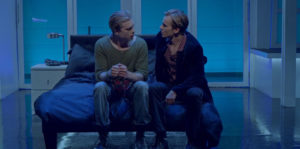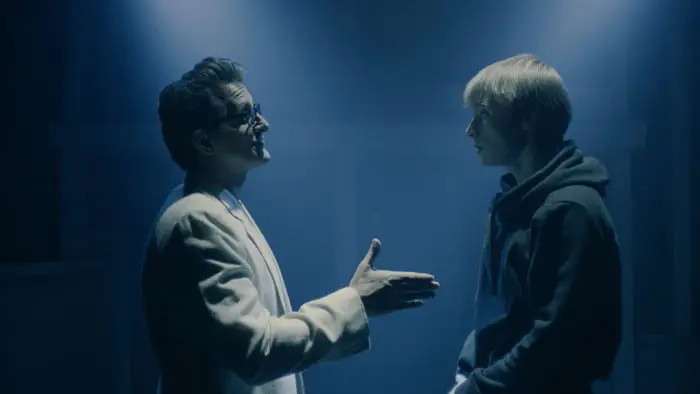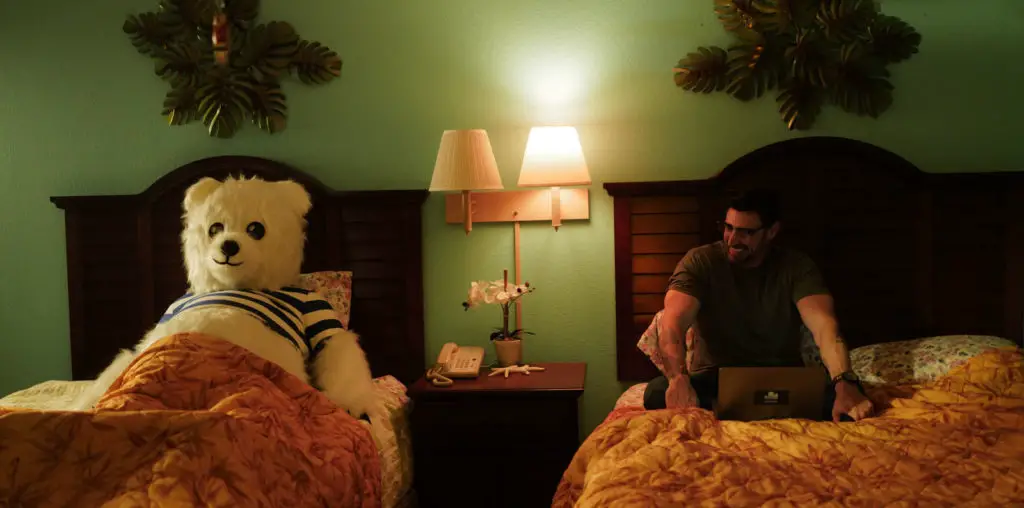
I also think that we don’t deal with a lot of male vulnerability and the abuse of young men. Men are so scared to be vulnerable and speak their truth. I think it is important to tell this story from another perspective because it is happening to men as well, and we shouldn’t be afraid to talk about it.
There are a lot of characters and plotlines in Famous. What was the writing experience like, from idea to outline to final script?
As I mentioned, earlier this was originally a film script, so it’s been through so many changes, edits, etc. In that process, my goal was to be able to include as many survivor stories as possible but needed them all to tie back into our main character. Again, this is another reason the party location was helpful. The writing experience for me is always a crazy ride. And this one was no different, diving deep into the character’s psyches, understanding the traumas of their past, knowing what they want, what they’re afraid of, and at the same time having their stories serve the overall message of the film.
I would assume economic is part of the answer, but what was the reason behind shooting Famous as a live stage performance?
It actually wasn’t for economic reasons. We probably could have shot the movie for a similar budget. I like to be challenged, and I feel like if I’m not doing something that scares me or challenges me, then I’m not being true to myself. I always liked the idea of mixing genres and telling stories in different ways. Our audiences were resonating so deeply with the stage play that it just made sense for me to capture it in its original form. The play, itself, is very cinematic, and so I thought, let’s bring the theater world to film and the film world to theater.

“…my job as a writer and as a director is to make sure I’m telling the story authentically…”
Was it easier to film in this setting as opposed to a traditional set?
Actually, it was more complicated to film in this setting because you’re dealing with limitations. You’re limited with the set, the lighting, and the camera movement. But with limitations comes creativity.
Let’s talk specifically about Famous. Along with When Today Ends, you take the subject matter to dark places. Almost to the point of making the viewer uncomfortable. I think making an audience uncomfortable only helps them engage with your story. Am I right? Can you speak to that?
I think truth is uncomfortable. As a director, I’m never thinking – oh, I’m going to make people uncomfortable. Sometimes I’m even shocked at the response of how intense people think my work is. I’m always like, “really?” I think my job as a writer and as a director is to make sure I’m telling the story authentically. As harsh as some of the stories are, I always want to make sure that I leave the audience with some sort of hope, or light at the end of the tunnel, because I believe beyond the darkness, the light is always there.


[…] Exposing the High Cost of Fame in Michael Leoni’s Famous Film Threat […]